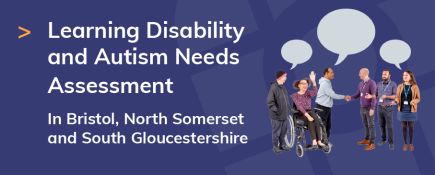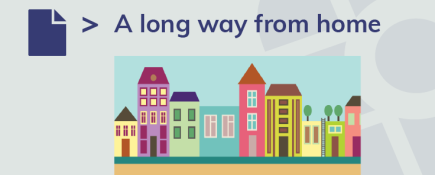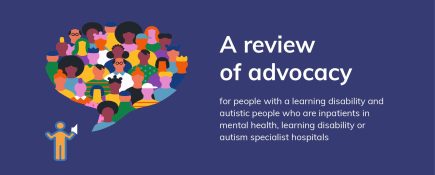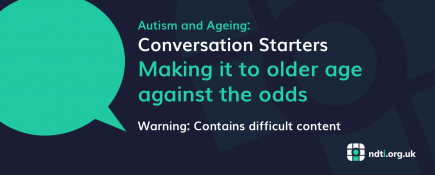
Supported internship funding extended for a fourth year
We are delighted to announce we will be delivering a fourth year of the Internships Work programme.
Our team of people with lived experience can carry out environmental sensory assessments in any health and social care setting.
This is a ‘walk through’ of wards and living areas, meeting and treatment rooms where autistic people are supported. It is an assessment of the sensory environment focusing on practical changes that could be made to improve the building.
Our team make recommendations that will reduce the sensory load that inpatients may experience.
It is expected that if changes are made based on these recommendations, autistic people in these environments are less likely to be affected by sensory overload that can lead to meltdown or shutdown.
Providers have duty under the Equality Act 2010 to make reasonable adjustments for any disabled people, including autistic people, using their services.
Reasonable adjustments could include changing the physical environment in which care is provided to reduce the stress it causes to someone with autism or meeting the person’s specific communication needs. Without adequate sensory assessments and training around autism, these health services are less likely to make the necessary reasonable adjustments.
CQC: Review of restraint, prolonged seclusion and segregation for people with a mental health problem, learning disability and or autism, page 23

We are delighted to announce we will be delivering a fourth year of the Internships Work programme.

Alice McColl, children and young people development lead, explores how her work with young disabled adults has become a beacon of hope towards change.

Free series of online webinars, Thursday 22-Friday 23 May. Hear about a range of tools, approaches and research on strengths-based practice.

Today the BBC revealed CCTV footage of an autistic pupil being brutally restrained by staff in a seclusion room at a school in Leeds.

What happens when you reimagine adult social support from the ground up? Dr Vicky Mason-Angelow shares what happened in Leeds following a two year pilot.

Anonymous guest blog: How small acts can make a big difference to neighbours, individuals and communities Winston and Marva live opposite me in one of the Victorian spec. built terraced houses that you see in...

As we start the new year our team is reflecting on the introduction of new mental health legislation. We share some thoughts below.

We're delighted to be collaborating with Shared Lives Plus and Community Catalysts on a campaign to highlight a range of proven approaches that are reshaping conversations about social care. Better Now focuses on the transformative...

Your vote counts. Two of our programmes have been shortlisted for an award: Small Supports for a service delivery award. The evaluation of Community Led Support, with the University of Birmingham, for a research and...

NDTi are working with Bristol City Council to write a Learning Disability and Autism Needs assessment report. This report is for Bristol, North Somerset and South Gloucestershire Local Authorities. We want to find out find...

This report by Dr Victoria Mason-Angelow documents the work and the outcomes undertaken in Leeds by the City Council and ICB partners to develop new small support organisations for people with learning disabilities and/or autistic...

This report is a summary of what the research and evidence tell us about why young people with learning disabilities and/or autistic young people are in residential placements and what can be done to address...

This report covers in depth research about advocacy for people with a learning disability and autistic people who are inpatients in mental health, learning disability or autism specialist hospitals.

A free self-assessment toolkit to help you assess and manage your team's response to risk.

Digital learning through Covid – opportunities to redress inequalities through including people with learning disabilities in digital redesign plans NDTi is part of the Valuing People Alliance, which, in turn, is a member of the...

The National Development Team for Inclusion (NDTi) was appointed by Health Education England, Skills for Care and the Department of Health and Social Care to be the independent evaluation partner of The Oliver McGowan Mandatory...

In a world taught to think of autistic people as male children & adolescents, allegedly destined for a lifetime as costly burdens on parents and society, we have arguably lost sight of the majority of...

Here's the thing about finding out I was autistic in late middle age: I was born autistic, but because I didn't know, I’d never understood what it was about me that always set me apart...

When I was a child and struggling to cope in the inhospitable world, I had a dream about what my house would look like, when I was old enough to make my own decisions.

Content warning: this conversation starter includes reference to a recent death by suicide. If you need urgent support, you can contact SHOUT by texting 85258, or the Samaritans by phoning 116123 or emailing jo@samaritans.org. Both...
Thank you for taking the time to subscribe.